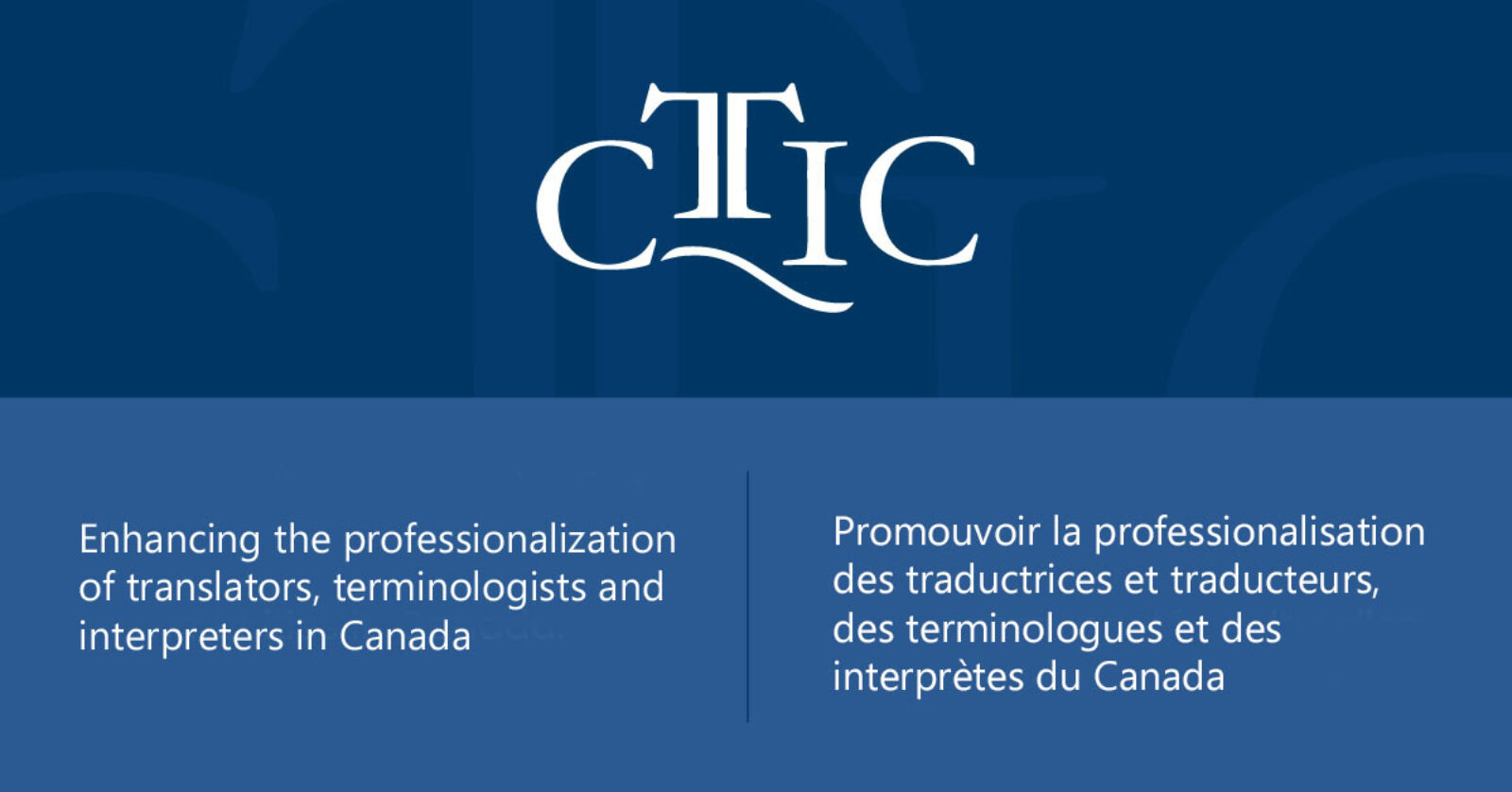An interview with Angela Fairbank, CTTIC Vice-President (2019-2022), previously published in the STIBC Voice Newsletter, July 2021, pages 6 to 8.

Translator, Terminologist, Interpreter – which of these three professions do you identify with and what is/are your language combination(s)?
I see myself as an Interpreter, first and foremost, although the Translator hat is something that all Interpreters should be putting on regularly. My languages of interpretation are English, Mandarin, and Taiwanese. I also translate from English to Chinese (Traditional and Simplified) and vice versa.?
Please provide a brief synopsis of your education – including language education – and background related to how you came to be a Community Interpreter specifically. For example, immersion in foreign countries and culture, university education, mentorship/menteeship, internship, etc.
I received my MBA in Michigan and after a few years in the corporate world, my passion for language worked itself back into my life. After arriving in Canada, down on my luck, I was saved by my language skills. I enrolled in a Community Interpreter Training course and went all-in. Over the years, I’ve continued to work on my skills through education and workshops, receiving a diploma in General Interpreting from York University in 2014. In my early days in the field, taking on assignments throughout the community brought me joy as I met people from all walks of life. My favourite memory is that of a young boy, no older than five, who thanked me for my interpretation by giving me his most treasured penny. He let me in on a secret: I couldn’t spend it because it was plastic. To this day, that lucky penny has followed me everywhere. Working with the community has been my lifeline and has brought many unexpected rewards. That is what makes interpreting so satisfying.
How long have you been working in your chosen profession?
More than 13 years.
Are you currently working in-house or as a freelancer? If you have had experience in both types of employment, which do you prefer?
I am a freelancer. I have had experience working in-house and the breadth of the work I encountered was invaluable. Learning the ins-and-outs of ISO 9000 processes through translation and interpretation has stayed with me to this day as the research involved when I take on certain assignments is crucial to performing well or submitting great work! That being said, there is nothing better than being a freelancer. The freedom and general sense of being in control of one’s own destiny is so fulfilling, I wouldn’t trade it for the world.
Where do you currently exercise your profession?
I am based in Toronto, Ontario.
Are you certified in your profession?? If so, by which certification organization(s), and for how long have you been certified now? If you are certified, once you became certified, did you notice your income increase slightly, moderately or substantially?
I have been an ATIO-Certified Community Interpreter in English/Chinese since 2019 and recently joined STIBC as an affiliate member.
What have been some of the highlights of your career so far?
I don’t really know what I would consider a highlight. Looking back, I’ve seen the phases I’ve gone through and the hurdles that I’ve had to overcome to move on. In the beginning, I suppose interpreting for expecting mothers at Lamaze classes comes to mind as a highlight.
Taking on a Taiwanese case the first time I was called in at the Immigration and Refugee Board would have to be the next significant stage of my growth as an interpreter. The feedback I received from the auditor was really the first time I had ever had my work vetted (and my dad would be proud, I actually do speak the language). The confidence that has come with taking on varied and unexpected assignments at the Board is something I am forever grateful for and definitely helped me when I set my sights on becoming a court interpreter for the Ministry of the Attorney General.
I guess all that bingeing of Forensic Files seasons worked because the first time I saw a photo of a dead body in court, I wasn’t fazed a bit when I had to interpret for the expert witness. That would have to be a highlight I had been looking forward to up to that point.
Among all of this, I would have to say that the highlight of my career would be the many great friends and mentors I have had the opportunity to meet and work with over the years. I really feel motivated when I see wonderful professionals all over the world who share the same passion and have that same drive. It’s humbling but it also pushes you to become better because you know there’s room for improvement. To this end, I must thank the American Translators Association for bringing many people into my life while I was helping out at the Chinese Language Division (CLD). Being a speaker at their annual conferences has been a privilege and serving as Administrator for the CLD was an honour.
Becoming an ATIO-Certified Community Interpreter was my next personal highlight. It led to my joining the Board as Director for Community Interpreters back in 2019. It has been an interesting period and I look forward to many more highlights as I move along on this journey.
Have there been any particular challenges in your profession you would like to share with our readers?
I feel that sometimes other parties don’t understand the complete dynamics of the interpreter relationship to the proceedings before them. It is up to us as interpreters to educate when something is not right. Too often, I see timidness take over and that leads to issues. The interpreter is the most important person in that room, be it in-person or virtual. Without the interpreter, the show cannot go on. I often see other parties brush off the interpreter or challenge the interpreter because they don’t hear what they want to hear. There are those who step back and let it get to them, and you can see their confidence fade away. Rather we should stand up and self-assuredly announce the reason for the interpretation. Participants need to think of the interpreter as a necessary communication channel for everything to work properly. Everyone needs to understand that it is in their best interest to have all of their resources work optimally, and an adversarial mindset when working with an interpreter is disadvantageous to all participants involved. Interpreters need to speak up to command respect. Part of the reason for this line of thinking is that many of them have probably encountered really poor interpreters. Not having properly qualified interpreters working in the field is probably the biggest challenge in our profession.
What advice do you have for colleagues who are just starting – or thinking of starting – today?
I think resilience is important for community interpreters. Having a thick skin is definitely a bonus because you will face many hurdles. Not being prepared is the biggest thing to knock your confidence, so I would put that at the top of the list. While working experience is the best asset for retaining information, you still need to nail the foundations of interpreting in order to put your best foot forward. Having taken a community interpreter trainer course in Maryland, I was quite amazed to get an overall picture of what someone needs in order to build that base of knowledge. Formal education or training is definitely recommended.
One thing I would like to share with those who are thinking of starting would be that interpreting is not for everyone. Being able to speak a foreign language doesn’t mean you can be an interpreter. An interpreter has to do the following things well: listen, understand, process, analyze, translate, and then speak – and do so almost simultaneously. I haven’t even talked about taking notes or being assertive enough to take control of situations, not to mention containing your emotions. All this multitasking makes interpreting what it is and for those who do it day in, day out, kudos to you. Interpreting is really rewarding and you’ll find it very meaningful, so just keep at it and keep learning.
You have recently become President of ATIO – Association of Translators, Terminologists and Interpreters of Ontario – congratulations! Could you please tell us a little bit about the association – i.e. how many members it has, when it was founded, and please feel free to mention any particular achievements made during your time within the board of ATIO to help it grow and what challenges, if any, still need to be met?
Thank you. It has been a whirlwind of activity for the past little bit. ATIO is the oldest organization of translators, conference interpreters, court interpreters, terminologists, community interpreters, and medical interpreters in Canada. It dates back to 1920 when it was known as the Association technologique de langue française d’Ottawa and has operated under its current name since 1962. Currently, there are approximately 1,000 members.
While it is still fairly early days, our current team and Board of Directors are looking ahead to moving the association forward in the post-pandemic world. Efforts are being made to run a few projects aimed at raising public awareness about Certification, promoting ATIO membership, and building a more cohesive membership community. Stay tuned …
You are also an affiliate member of STIBC. Thanks for joining! Could you let us know why you decided to become an affiliate member of STIBC and what the advantages are for someone to be a member of more than one member society under the CTTIC umbrella?
The pandemic has changed the way we work. Borders are no longer barriers, being physically together is a thing of the past, and the mention of different time zones has now been relegated to the interesting small talk side of meetings. I’ve been curious to find out how members can utilize their connection to our national society. What better way to see why this would be beneficial than to join a sister provincial organization? Of course, everything involves getting the word out there and, of course, my experience would be different from others. But having a national society of like-minded professionals definitely comes with benefits. It’s just a matter of dipping into the pool and seeing where it leads.
Is there anything I missed that you would like to add?
No, I think your questions cover quite a lot. Thank you.
